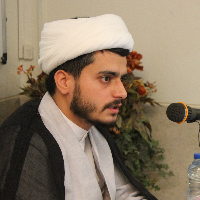Moral Luck in Contemporary Twelver Shiite Principles of Jurisprudence
Author(s):
Article Type:
Research/Original Article (دارای رتبه معتبر)
Abstract:
The issue of moral luck is one of the interesting and influential issues in contemporary philosophy of ethics. The main question of this discussion can be expressed as follows: Do matters that are beyond the authority and control of the moral agent affect his moral standing or the extent of his worthiness for moral praise or blame? The “Principle of Control” replies negatively to this question while “Moral Luck” gives a positive one. In the first encounter with the jurisprudential tradition after Shaykh Ansari, it seems that there are two stances in this regard. Through the analytic study of this jurisprudential tradition, the authors have strived to identify, review, and explain the views presented in this intellectual tradition. The emphasis of the jurists that an involuntary act is outside the scope of duty, at least apparently, is an emphasis of the Principle of Control; however, we will see that this principle derived from the principles of jurisprudence is different from the Principle of Control raised in contemporary philosophy of ethics. On the other hand, the views of some jurists in the discussion of tajarrī, and their jurisprudence and interpretation regarding some narrations supports the acceptance of moral luck. A comparison of the collection of prevalent views in the principles of jurisprudence of contemporary Twelver Shiites leads us to the conclusion that the stance of most of them is to accept moral luck along with a particular reading that is compatible with the Principle of Control.
The principle of control in Twelver Shiite principles of jurisprudence
Based on the existing literature in contemporary philosophy of ethics, the Principle of Control can be explained as follows:The Principle of Control 1: The moral agent can only be morally evaluated to the extent that moral evaluation is based on factors that are under his free will and control.
In contemporary Twelver Shiite principles of jurisprudence, free will is considered a necessary condition for duties or moral judgments. It seems that this view approves of the Principle of Control; however, not precisely the Principle of Control 1. The principle that can be attributed to the jurists is as follows:The Principle of Control 2: The moral agent is only assessable for the performance of an action that is under his authority and control. Or if it is not under his authority and control, the agent himself has caused this lack of authority through a voluntary act.
Moral luck in Twelver Shiite principles of jusrisprudence
On the other hand, some jurists do not consider a person who is a mutajarrī (one who has performed an act that he thinks is a sin which is not actually a sin) to be deserving of punishment; in contrast to a sinner whereas the difference between the two is in something that is beyond their authority and control. Similarly, it is well-known among jurists that a marja[1] who has arrived at reality will receive twice the reward while one had not arrived would receive one, whereas reaching reality is not completely under his authority and control. Two marajiʿ may strive to the same extent; however, only one of them will arrive at the correct view. The third stance that some contemporary jurists have raised regarding the worthiness of reward or punishment due to an involuntary action is their interpretation of narrations that state: The reward of someone who establishes a good tradition increases to the extent of adherence to that tradition and the punishment of someone who establishes a bad tradition increases to the extent of adherence to that tradition. Obviously, the extent of adherence to a tradition is not completely under the control of the founder of that tradition and two founders may strive to exactly the same extent to promote their traditions; however, one tradition will have more followers.
Considering the differences between the Principle of Control 1 and 2, it seems that the Principle of Control 2 can be combined with moral luck and, as a result, with situational and dispositional moral luck. Based on the Principle of Control 2, for an agent to be properly evaluated, it is sufficient that his action is performed voluntarily, or if it is involuntary, the agent himself caused this involuntariness. However, based on the Principle of Control 1, the agent is only assessable to the extent that moral evaluation is based on factors that are under his authority and control. In reality, in the Principle of Control 2, only the voluntariness of an action is important and if the action itself is voluntary, the moral evaluation of the agent is not limited to the extent that the action is voluntary and under one’s control.
Introduction
The issue of moral luck that was raised at the end of the twentieth century by Thomas Nagel and Bernard Williams can also be pursued in Twelver Shiite principles of jurisprudence. The aims of the authors of this paper are to identify, review, and analyze the prevalent view or viewsamong contemporary Twelver Shiite jurists in dealing with the issue of moral luck. In the jurisprudential tradition after Shaykh Ansari, there is a stance that approves the Principle of Control. However, a point to note is that the jurists have a particular reading of this principle which is different from the prevalent reading in contemporary philosophy of ethics. Some of the stances of contemporary Twelver Shiite jurists also support the acceptance of moral luck. As a result, moral luck is situational and dispositional. In this paper, we will show that many of the contemporary jurists accept moral luck and the Principle of Control that is compatible with it.The principle of control in Twelver Shiite principles of jurisprudence
Based on the existing literature in contemporary philosophy of ethics, the Principle of Control can be explained as follows:The Principle of Control 1: The moral agent can only be morally evaluated to the extent that moral evaluation is based on factors that are under his free will and control.
In contemporary Twelver Shiite principles of jurisprudence, free will is considered a necessary condition for duties or moral judgments. It seems that this view approves of the Principle of Control; however, not precisely the Principle of Control 1. The principle that can be attributed to the jurists is as follows:The Principle of Control 2: The moral agent is only assessable for the performance of an action that is under his authority and control. Or if it is not under his authority and control, the agent himself has caused this lack of authority through a voluntary act.
Moral luck in Twelver Shiite principles of jusrisprudence
On the other hand, some jurists do not consider a person who is a mutajarrī (one who has performed an act that he thinks is a sin which is not actually a sin) to be deserving of punishment; in contrast to a sinner whereas the difference between the two is in something that is beyond their authority and control. Similarly, it is well-known among jurists that a marja[1] who has arrived at reality will receive twice the reward while one had not arrived would receive one, whereas reaching reality is not completely under his authority and control. Two marajiʿ may strive to the same extent; however, only one of them will arrive at the correct view. The third stance that some contemporary jurists have raised regarding the worthiness of reward or punishment due to an involuntary action is their interpretation of narrations that state: The reward of someone who establishes a good tradition increases to the extent of adherence to that tradition and the punishment of someone who establishes a bad tradition increases to the extent of adherence to that tradition. Obviously, the extent of adherence to a tradition is not completely under the control of the founder of that tradition and two founders may strive to exactly the same extent to promote their traditions; however, one tradition will have more followers.
Discussion
The view of this group of jurists in these discussions requires that something outside the control and authority of the agent influences his worthiness of reward or punishment and this is equivalent to the acceptance of moral luck.Considering the differences between the Principle of Control 1 and 2, it seems that the Principle of Control 2 can be combined with moral luck and, as a result, with situational and dispositional moral luck. Based on the Principle of Control 2, for an agent to be properly evaluated, it is sufficient that his action is performed voluntarily, or if it is involuntary, the agent himself caused this involuntariness. However, based on the Principle of Control 1, the agent is only assessable to the extent that moral evaluation is based on factors that are under his authority and control. In reality, in the Principle of Control 2, only the voluntariness of an action is important and if the action itself is voluntary, the moral evaluation of the agent is not limited to the extent that the action is voluntary and under one’s control.
Conclusion
Some contemporary Twelver Shiite jurists believe that sometimes a matter beyond the authority and control of an agent is influential in the extent of the worthiness of praise and reward, or blame and punishment of an agent and, therefore, they accept moral luck; except causal luck. Similarly, the jurists also believe in a specific reading of the principle that is compatible with it.Keywords:
Language:
Persian
Published:
Journal of Philosophical Theological Research, Volume:25 Issue: 4, 2024
Pages:
55 to 78
magiran.com/p2683711
دانلود و مطالعه متن این مقاله با یکی از روشهای زیر امکان پذیر است:
اشتراک شخصی
با عضویت و پرداخت آنلاین حق اشتراک یکساله به مبلغ 1,390,000ريال میتوانید 70 عنوان مطلب دانلود کنید!
اشتراک سازمانی
به کتابخانه دانشگاه یا محل کار خود پیشنهاد کنید تا اشتراک سازمانی این پایگاه را برای دسترسی نامحدود همه کاربران به متن مطالب تهیه نمایند!
توجه!
- حق عضویت دریافتی صرف حمایت از نشریات عضو و نگهداری، تکمیل و توسعه مگیران میشود.
- پرداخت حق اشتراک و دانلود مقالات اجازه بازنشر آن در سایر رسانههای چاپی و دیجیتال را به کاربر نمیدهد.
In order to view content subscription is required
Personal subscription
Subscribe magiran.com for 70 € euros via PayPal and download 70 articles during a year.
Organization subscription
Please contact us to subscribe your university or library for unlimited access!




